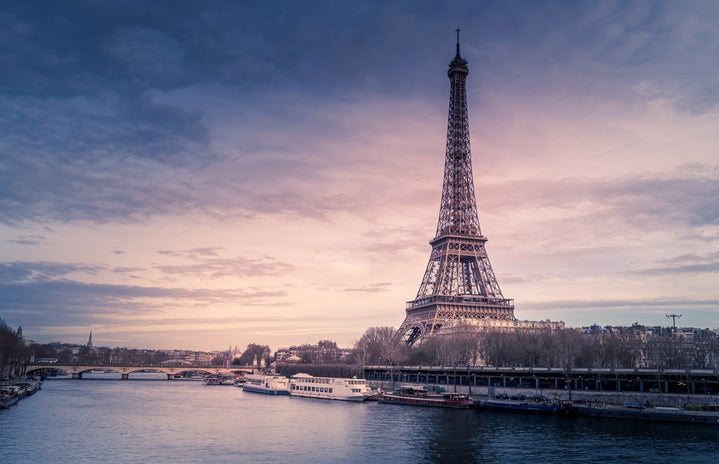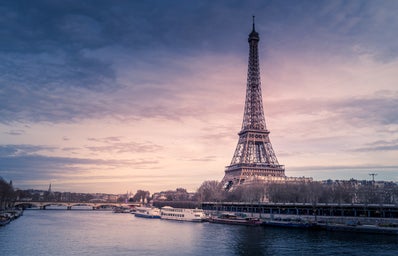I read Anthony Doerr’s World War II fiction All the Light We Cannot See a few years after the novel’s publication, and I immediately fell in love. I adored his characters — the tough, perseverant Marie-Laure, the intelligent, complicated Werner, the gritty, compassionate Madame Manec, and the courageous, caring Etienne. Additionally, I admired the author’s unique, intriguing method of weaving his story, of masterfully laying down the events of the novel like individual tiles in a great mosaic to create a wonderful, shocking narrative that highlights the brutality of war and the connection between all human beings. In short — I loved this novel. So, when I heard the news that Netflix would be creating a series of one of my most beloved novels, I was thrilled. After watching some of Netflix’s famous book-to-screen series, such as The Queen’s Gambit and Anne with an E, I had high hopes for their adaptation of the historical fiction.
When Netflix finally released the series in late 2023, I was elated; I had been waiting for this series for a long time, and it was finally here, ready for me to watch at the push of a few buttons. I waited for a good occasion to watch the show, cozying up with a nice cup of tea and a fuzzy blanket to create the perfect conditions before excitedly queuing up the first episode. When I finished the episode, I was utterly deflated — the show was nothing like the book. The dissimilarity between book and screen adaptation is not normally something that shocks me (although I thought that, since the book would be a TV series, the adaptation might be more accurate), but these differences left me indignant. Hardly any of the book’s events made it to the screen. Barely any of the first section of the book (Papa and Marie-Laure’s life in Paris before and during Nazi occupation and their arduous journey to St. Malo) appeared in the show. It merely hinted at the terror of living in Paris before and after the arrival of the Nazis as well as the struggle of the trek from Paris to St. Malo — two extremely important events of the novel. It also left out much of Werner’s life at the National Institute, erasing much of the brutality he both witnesses and experiences in the book and some of the key relationships he makes while there, including his friendship with Frederick, a fellow student. There are many other divergences, but the point at which the show really breaks off from the book is at the end. I won’t spoil the conclusion of the book for anyone who has yet to read it (which I highly recommend everyone does), but you should know that its denouement is exceedingly different from the show’s.
The difference in the endings deeply upset me; the show misses some of the novel’s core themes: the horridness, the futility, the wastefulness of war. Shawn Levy, the director of the Netflix series, provides his reasoning for omitting some of the novel’s crucial epilogue scenes in an interview with Entertainment Weekly, stating, “Though it [the finale of the show] is far from a happy ending, I wanted to end with a promise of hope, and there were some bleak, deeply upsetting scenes late in the book that we didn’t include in the show” (Nolfi, 2023). I find this justification unsatisfying; a show about war should be deeply upsetting. One of the novel’s most important objectives is to showcase the brutality and dehumanizing nature of war. Not all shows have to have a happy ending, especially a show about World War II.
I also feel the time jumps in the novel were poorly handled. In the show, we meet characters (such as Etienne) after they have already completed their character arcs and hear stories of events (such as Werner’s time at the National Institute) that are later portrayed in the show. This ineffective strategy makes characters’ progressions feel unfulfilling since you already know the outcome, and the viewing of events already told feels redundant and unnecessary. I understand that, in the show, you can’t make time jumps as frequently as the book does, as that would be dizzying and confusing, but perhaps telling the majority of the story chronologically with a few time jumps would have worked best.
I do think the actors were well-chosen and did a great job of portraying their characters. Aria Mia Loberti did an excellent job of playing Marie-Laure; she was absolutely perfect for the role. Louis Hoffman also did an amazing job as Werner, who is an incredibly complex character. However, I will say I wish all of the characters who were supposed to be French had French, and not British, accents, including Marie-Laure, Daniel LeBlanc, Etienne, and Madame Manec. I had to remind myself that the story was set in France, not Great Britain. But, then again, I would not trade Aria Mia Loberti or any of the other actors for anyone else.
Perhaps this show was more enjoyable for people who have not read the book — I can’t say. For me, the most upsetting result of the differences between the book and the show was that the adaptation lost much of the novel’s significance and message. All the Light We Cannot See may simply be a book that should not have been transformed into a show, as the story lost much of its potency when transmitted through the medium of television.


